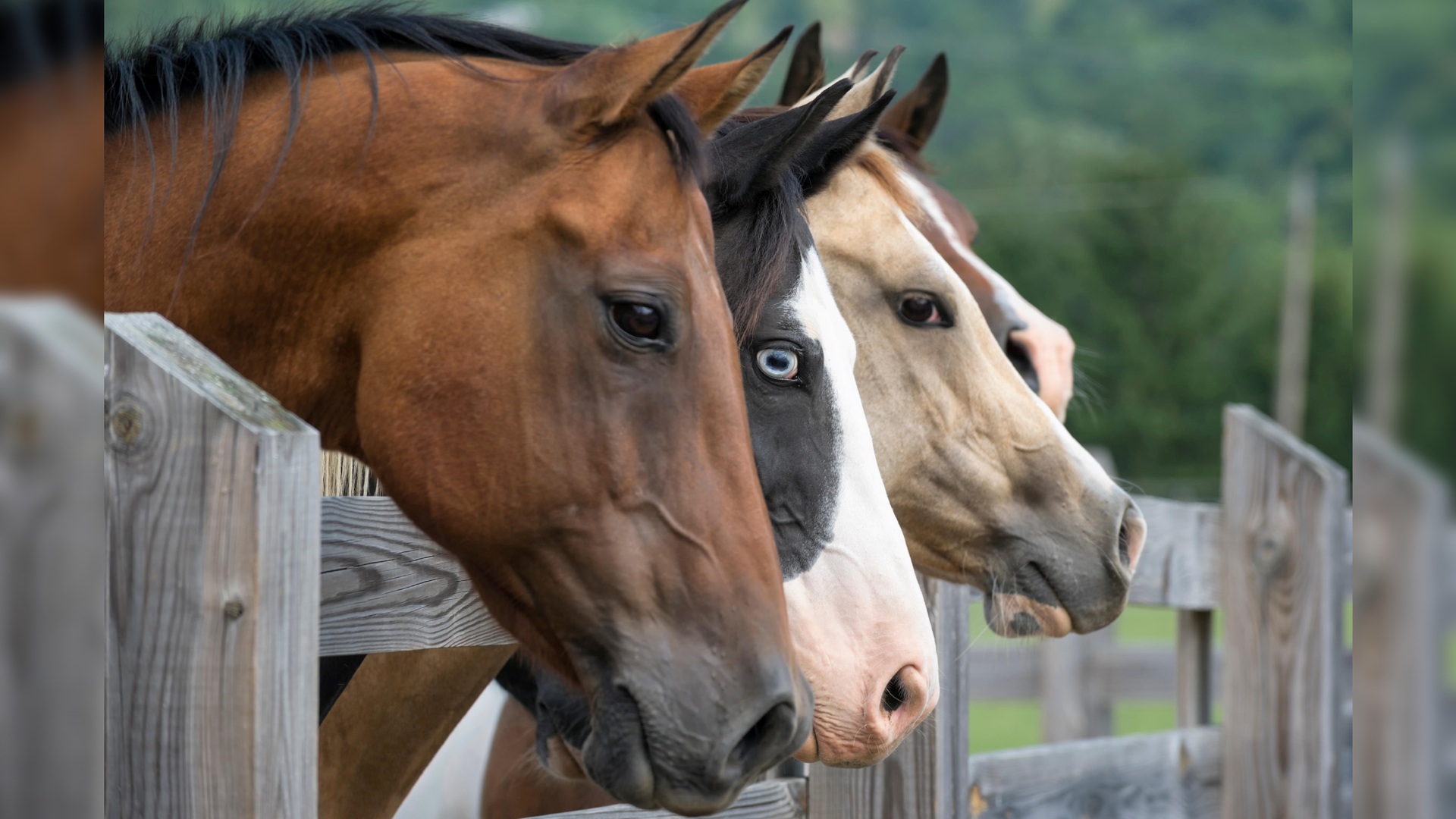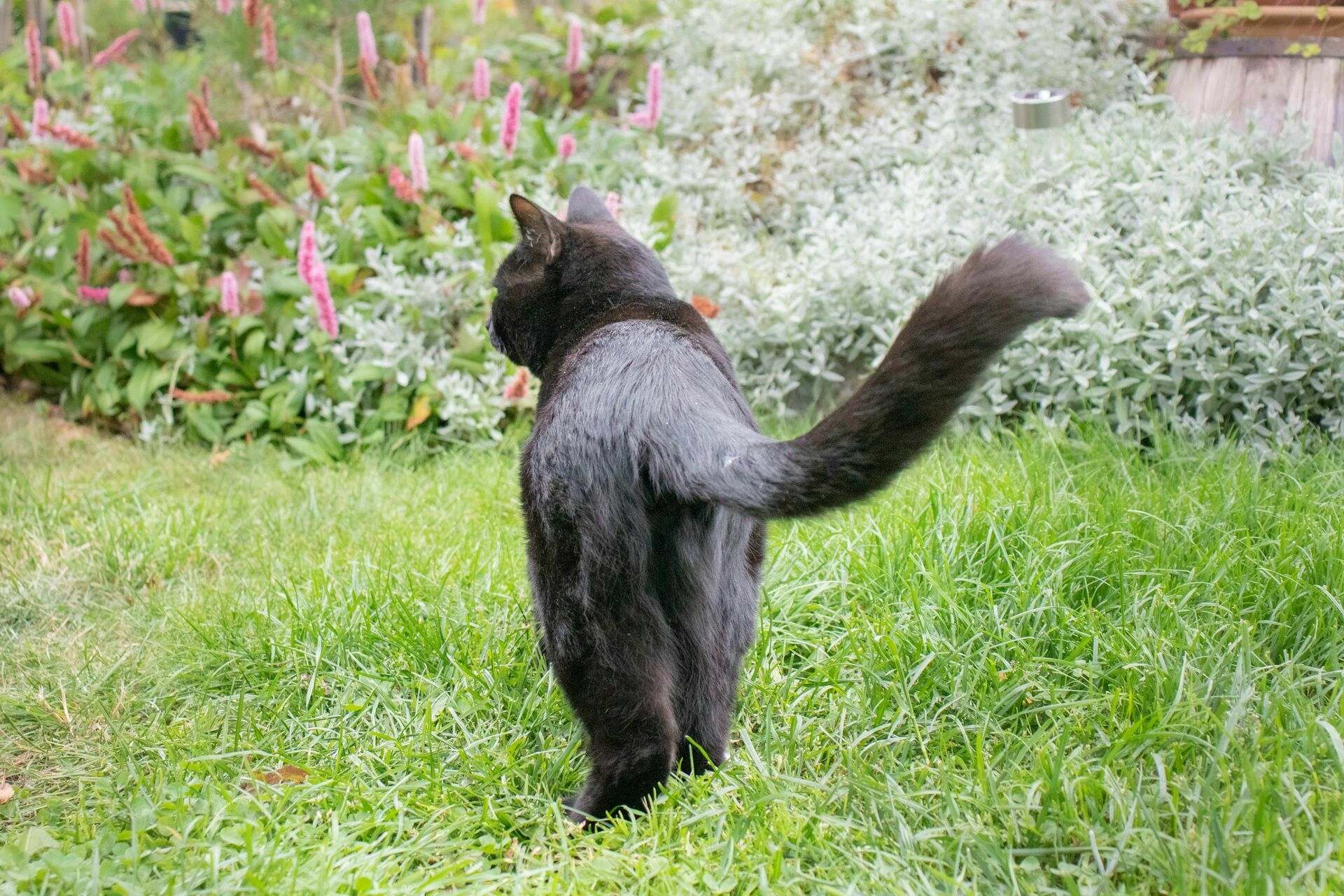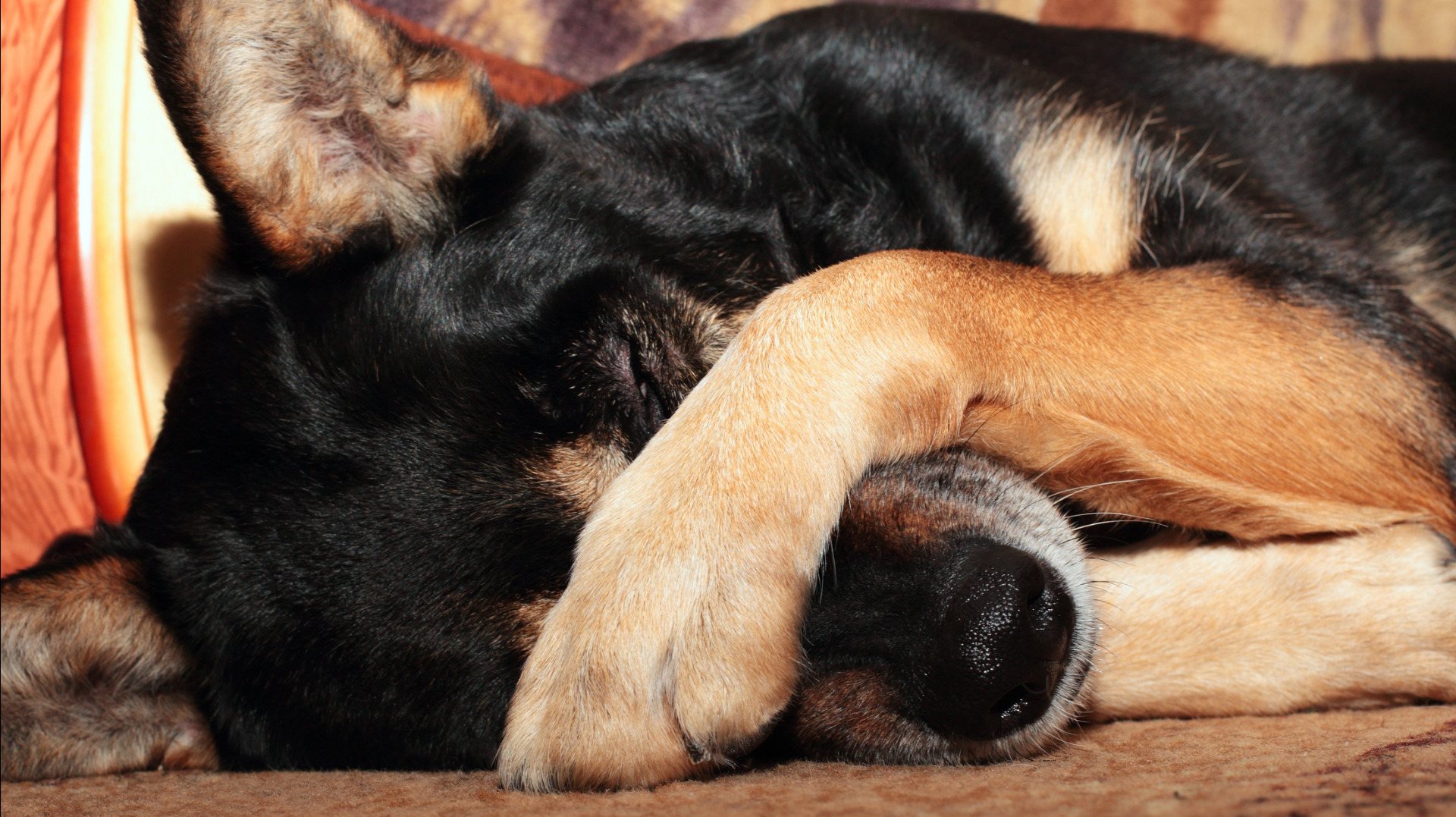

FAQs
Why Do Horses Fart So Much
Modified: August 5, 2023
Discover the answer to one of the most common horse-related queries - find out why horses fart so frequently. Uncover interesting facts and insights in this informative article.
(Many of the links in this article redirect to a specific reviewed product. Your purchase of these products through affiliate links helps to generate commission for Under-tec.com, at no extra cost. Learn more)
Table of Contents
Introduction
Horses are majestic creatures that have captured the admiration and fascination of humans for centuries. As we watch them graze peacefully in fields or gallop gracefully across open plains, it’s hard not to be mesmerized by their beauty and power. However, anyone who has spent time around horses knows that there is one aspect of their biology that can be quite surprising – their tendency to fart.
Yes, you read that correctly. Horses are known for their propensity to pass gas, and it’s not uncommon to hear the sound of a thunderous fart echoing through a barn or stable. But have you ever wondered why horses fart so much? Is it simply a natural bodily function, or is there something more going on?
In this article, we will delve into the fascinating world of equine flatulence and explore the reasons behind why horses fart so frequently. We’ll examine the anatomy of a horse’s digestive system, the factors that contribute to excessive flatulence, and the role that diet plays in gas production. We’ll also touch on common gastrointestinal disorders that can impact a horse’s digestive health, and share some management strategies for reducing flatulence.
So, if you’ve ever been curious about why horses fart so much, saddle up and join us as we embark on a journey through the gassy world of equines. Get ready to discover the fascinating science behind those rumbling sounds and odiferous emissions. Let’s dive in!
Anatomy of a Horse’s Digestive System
To understand why horses fart so much, it’s important to have some knowledge of their unique digestive system. Unlike humans, horses are herbivores with a specialized gastrointestinal tract that allows them to efficiently digest plant material.
The digestive process in horses starts in the mouth, where they use their teeth to grind up food. As the horse chews, saliva mixes with the food to begin the breakdown of carbohydrates. From there, the food travels through the esophagus and enters the stomach.
The horse’s stomach is relatively small compared to its size and has a limited capacity to hold food. This means that horses must eat small amounts of food continuously throughout the day to meet their nutritional needs. When the stomach fills up, excess gas and fluid can be expelled through the mouth in the form of burps or vomit.
After leaving the stomach, the partially digested food enters the small intestine, where most of the nutrients are absorbed into the horse’s bloodstream. From there, it moves into the large intestine, which is divided into several sections – the cecum, colon, and rectum.
The cecum is a fermentation chamber located at the junction of the small and large intestines. It is a critical organ for horses because it houses billions of beneficial bacteria and microbes that help break down fibrous materials like cellulose, which the horse’s stomach cannot digest on its own.
As the fibrous material is broken down in the cecum, gases like methane, carbon dioxide, and hydrogen are produced. These gases are then released through the rectum, resulting in the familiar sound and smell of horse farts.
The unique anatomy of a horse’s digestive system, including the relatively small stomach and the fermentation process in the hindgut, contribute to their propensity to fart more frequently compared to other animals. It’s a natural and necessary aspect of their biology that helps them efficiently process the fibrous plant material they consume.
Now that we’ve explored the anatomy of a horse’s digestive system, let’s delve deeper into the factors that contribute to their excessive flatulence.
Factors that Contribute to Excessive Flatulence
While farting is a normal part of a horse’s digestive process, certain factors can contribute to excessive flatulence. Understanding these factors can help us better comprehend why horses fart so frequently.
One of the primary factors that contribute to excessive flatulence in horses is their unique digestive system. As herbivores, horses rely on fermentation in the hindgut to break down fibrous plant material. This fermentation process produces gases as a byproduct, and these gases need to be expelled from the body.
The quantity and frequency of flatulence in horses can vary based on several factors, including their diet. Horses that consume a high-fiber diet, such as pasture grass and hay, are more likely to produce significant amounts of gas. The fibrous material requires more fermentation, leading to increased gas production and subsequent flatulence.
In addition, certain types of feeds can also contribute to excessive flatulence in horses. For example, feeds that are high in starch or sugar content can disrupt the natural balance of bacteria in the hindgut, leading to increased gas production. It’s important to carefully consider the composition of a horse’s diet and select feeds that are appropriate for their digestive health.
Other factors that can contribute to excessive flatulence in horses include rapid changes in diet, overeating, and inadequate exercise. Sudden shifts in a horse’s diet can disrupt the delicate balance of bacteria in the hindgut, triggering excessive gas production. Overeating can overwhelm the digestive system, leading to inefficient fermentation and increased flatulence. Lack of exercise can also contribute to digestive sluggishness, further exacerbating the issue.
In some cases, underlying gastrointestinal disorders can also contribute to excessive flatulence in horses. Conditions such as colic, gastric ulcers, or hindgut acidosis can disrupt the normal digestive process, leading to increased gas production and discomfort for the horse.
It’s worth noting that while excessive flatulence may be a common phenomenon in horses, it is always important to monitor their overall digestive health. If there are any signs of discomfort, changes in appetite, or persistent gastrointestinal issues, it is advisable to consult with a veterinarian to rule out any underlying conditions.
Now that we understand the factors that contribute to excessive flatulence in horses, let’s explore the fermentation process in the hindgut in more detail.
Fermentation in the Hindgut
One of the key processes that occurs in a horse’s digestive system is fermentation, particularly in the hindgut. The hindgut, which comprises the cecum, colon, and rectum, plays a crucial role in breaking down fibrous plant material that the horse’s stomach cannot digest on its own.
The fermentation process in the hindgut involves the activity of billions of beneficial bacteria and microbes that reside in the cecum. These microorganisms specialize in breaking down complex carbohydrates like cellulose, hemicellulose, and lignin, which are abundant in plant material.
As these bacteria and microbes digest the fibrous material, they produce gases such as methane, carbon dioxide, and hydrogen as byproducts. These gases accumulate and need to be released from the horse’s body, resulting in flatulence.
Interestingly, the composition of a horse’s diet can impact the fermentation process and, subsequently, the amount of gas produced. High-fiber diets, such as grass and hay, require more extensive fermentation and can result in increased gas production. Additionally, feeds that are high in starch or sugar content can disrupt the balance of bacteria in the hindgut, leading to altered fermentation and excess gas production.
The fermentation process also has implications for a horse’s nutritional needs. As the bacteria and microbes break down the plant material, they release volatile fatty acids (VFAs) as a metabolic byproduct. These VFAs are a valuable energy source for the horse, providing a significant portion of their daily caloric requirements.
However, the fermentation process also produces other compounds that are less beneficial. For example, the breakdown of certain carbohydrates can result in the production of lactic acid, which, if excessive, can lower the pH level in the hindgut and potentially lead to conditions like hindgut acidosis.
Overall, the fermentation process in the hindgut is a crucial component of a horse’s digestive system. It enables them to extract nutrients from fibrous plant material and convert them into usable energy. However, it is important to ensure a balanced diet and proper management practices to optimize fermentation and reduce the risk of digestive issues and excessive flatulence.
Now that we’ve explored the fermentation process in the hindgut, let’s examine how dietary factors can influence gas production in horses.
Dietary Factors and Gas Production
The diet of a horse plays a significant role in determining the amount of gas they produce. Certain dietary factors can influence the fermentation process in the hindgut, leading to increased gas production and flatulence.
High-fiber diets, such as pasture grass and hay, are a staple for horses. However, the fibrous nature of these feedstuffs requires extensive fermentation in the hindgut to break down the complex carbohydrates. As a result, horses consuming high-fiber diets tend to produce more gas compared to those on low-fiber diets.
In addition to fiber content, the type of forage can also impact gas production. Forages high in non-structural carbohydrates, such as legumes like alfalfa or clover, can lead to increased gas production due to their higher sugar content. On the other hand, forages with a higher lignin content, such as mature grass hays, can result in more fiber fermentation and gas production.
Along with forages, concentrates and grains can influence gas production in horses. Feeds that are high in starch or sugar, such as corn or sweet feed, can disrupt the balance of bacteria in the hindgut, leading to altered fermentation and increased gas production. It’s important to carefully select feeds that are appropriate for a horse’s digestive health and minimize the intake of concentrates high in non-structural carbohydrates.
Another dietary factor to consider is the feeding frequency and portion sizes. Horses are designed to graze continuously throughout the day, mimicking their natural feeding behavior. When horses are fed large meals infrequently, it can overwhelm the digestive system and hinder proper fermentation, leading to increased gas production and potentially digestive issues.
Proper management of a horse’s diet is crucial in minimizing excessive flatulence. Here are some tips to help reduce gas production:
- Provide high-quality forage, such as grass hay, to meet the horse’s fiber requirements.
- Gradually introduce any dietary changes to allow the hindgut bacteria to adapt.
- Avoid excessive intake of concentrates high in starch or sugar.
- Divide meals into smaller portions and increase feeding frequency to mimic grazing behavior.
- Provide regular exercise to promote digestive motility and efficient fermentation.
By taking these steps, horse owners can help maintain a healthy digestive system, reduce the risk of gastrointestinal disorders, and manage flatulence levels in their equine companions.
Next, we’ll discuss some common gastrointestinal disorders that can contribute to excessive flatulence in horses.
Common Gastrointestinal Disorders in Horses
While flatulence is a normal part of a horse’s digestive process, there are instances where excessive gas production may be a symptom of an underlying gastrointestinal disorder. Understanding these common disorders can help horse owners recognize when excessive flatulence may indicate a greater health concern.
One common gastrointestinal disorder in horses is colic. Colic refers to abdominal pain that can have various causes, such as intestinal blockages, gas accumulation, or twists in the intestines. Colic can disrupt the normal digestive process and lead to increased gas production and flatulence. It is crucial to consult with a veterinarian if a horse displays signs of colic, such as pawing, rolling, or signs of discomfort, as it can be a life-threatening condition.
Gastric ulcers are another prevalent gastrointestinal disorder in horses. These ulcers develop in the stomach lining and can be caused by factors like stress, prolonged fasting, or feeding high-concentrate diets. Horses with gastric ulcers may exhibit symptoms such as decreased appetite, weight loss, or behavioral changes. While excessive flatulence may not be a primary symptom of gastric ulcers, it can occur as a result of the disruption in the normal digestive process.
Hindgut acidosis is a condition that occurs when there is an imbalance in the pH level of the hindgut, leading to an overproduction of lactic acid. This can occur when a horse’s diet consists of feeds high in starch or sugar, or when there is a sudden change in diet. Hindgut acidosis can cause discomfort, diarrhea, and increases in flatulence. Careful management of a horse’s diet and gradually transitioning to new feed can help prevent this condition.
Intestinal parasites can also contribute to digestive disorders in horses. Parasitic infestations can cause inflammation in the intestines and disrupt the normal digestive process, leading to increased gas production. Routine deworming and regular fecal exams can help prevent and manage parasitic infections.
It’s essential to monitor a horse’s overall digestive health and seek veterinary care if there are any concerns. Diagnosis and treatment of gastrointestinal disorders require professional expertise, and early intervention can prevent serious complications.
Now that we’ve explored common gastrointestinal disorders in horses, let’s discuss management strategies for reducing flatulence and promoting digestive health.
Management Strategies for Reducing Flatulence
While some level of flatulence is normal for horses, there are several management strategies that can help reduce excessive flatulence and promote overall digestive health. By implementing these strategies, horse owners can ensure their equine companions maintain optimal gastrointestinal function.
1. Maintain a balanced diet: Providing a well-balanced diet is essential for proper digestion and minimizing gas production. This includes offering high-quality forage, such as grass hay, and selecting feeds that are appropriate for the horse’s individual needs. Avoiding feeds high in starch or sugar content can help maintain the balance of bacteria in the hindgut.
2. Feed smaller, more frequent meals: Horses are natural grazers, so feeding smaller meals multiple times throughout the day is beneficial. This approach allows for more efficient digestion and avoids overloading the digestive system, which can lead to excess gas production.
3. Gradual diet changes: When introducing dietary changes, it is important to do so gradually to allow the horse’s digestive system to adjust. Sudden changes in diet can disrupt the balance of bacteria in the hindgut, leading to increased gas production. Slowly transitioning to new feeds or forages over a period of several days can help prevent digestive disturbances.
4. Regular exercise: Regular exercise not only promotes overall health but also aids in maintaining proper digestive motility. Movement encourages the natural flow of food through the digestive tract, reducing the risk of fermentation imbalances and excessive gas production.
5. Provide turnout and grazing opportunities: Allowing horses access to pasture and grazing opportunities mimics their natural feeding behavior and keeps their digestive system functioning optimally. The natural grazing activity promotes the steady intake of forage throughout the day, promoting proper digestion and reducing the risk of excessive flatulence.
6. Ensure proper hydration: Adequate water intake is crucial for proper digestion. Horses should have access to fresh, clean water at all times. Adequate hydration helps maintain a healthy digestive system and prevents issues such as impaction colic.
7. Regular veterinary care: Regular veterinary check-ups are essential for monitoring a horse’s digestive health. Routine dental care and deworming protocols can help prevent oral and intestinal issues that can impact digestion and gas production.
By incorporating these management strategies, horse owners can promote a healthy and well-functioning digestive system in their equine companions. It’s important to consider the individual needs and requirements of each horse and consult with a veterinarian or equine nutritionist for specific recommendations.
Now that we’ve discussed management strategies for reducing flatulence, let’s conclude our exploration of horses and their propensity to fart.
Conclusion
In conclusion, horses are indeed notorious for their frequent bouts of flatulence. This natural bodily function is a result of the unique anatomy and digestive system of these majestic creatures. The fermentation process that takes place in the hindgut of a horse enables them to efficiently break down fibrous plant material, but it also produces gases that need to be expelled through farting.
Factors such as diet, including the fiber content and type of feed, can influence gas production in horses. High-fiber diets and feeds high in starch or sugar can contribute to increased flatulence. Additionally, certain gastrointestinal disorders like colic, gastric ulcers, and hindgut acidosis can disrupt the normal digestive process and lead to excessive gas production.
However, there are management strategies that horse owners can implement to help reduce flatulence and promote overall digestive health. These include providing a balanced diet, feeding smaller, more frequent meals, allowing for regular exercise and turnout, ensuring proper hydration, and seeking veterinary care to monitor and address any potential digestive disorders.
Understanding the unique digestive system of horses and the factors that contribute to excessive flatulence not only helps horse owners appreciate the natural processes at play but also allows them to better care for their equine companions. By implementing these strategies, horse owners can ensure their horses’ digestive health is optimized and minimize the discomfort associated with excessive gas production.
So, the next time you hear a thunderous fart emanate from a horse, remember that it’s just their digestive system doing its job. Embrace the uniqueness and quirks of these incredible animals, and appreciate all the wonders of the equine world!










